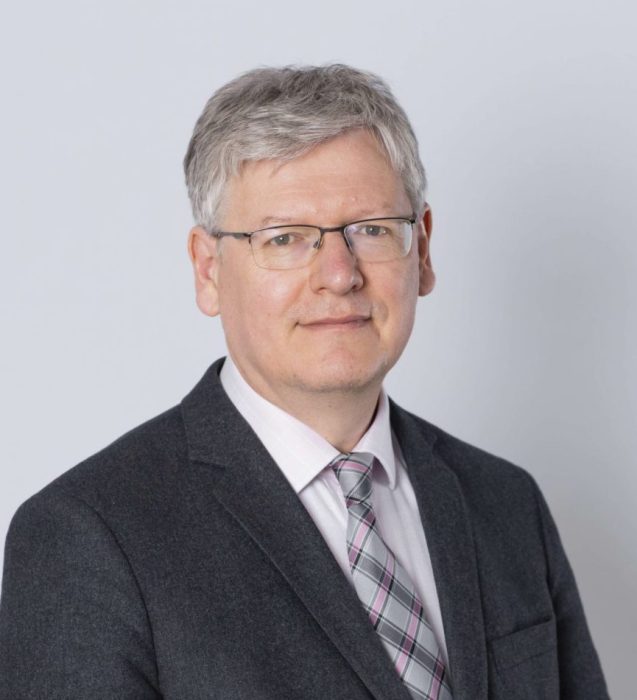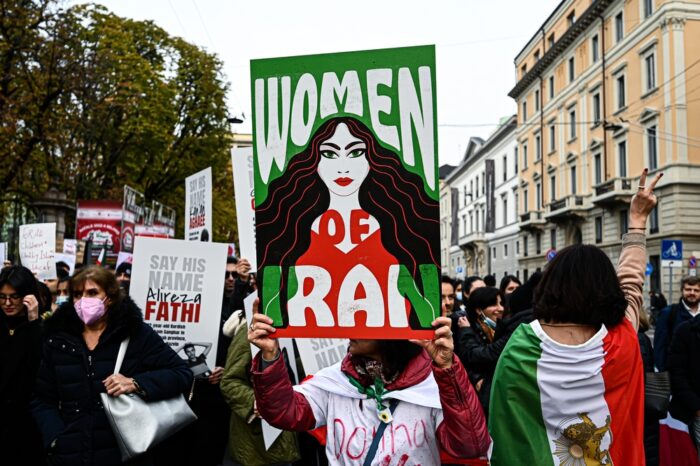Find all related Progressive Post
Progressive Post

A remarkable public consultation is under way which will determine the future of Europe for the coming years – if not decades. Citizens are discussing how green our future should be, and what to do to protect democracy inside and outside the European Union. Preserving economic competitiveness, but at the same time strengthening social cohesion, dealing with the care crisis in the wake of demographic ageing, improving the lot of poorer people by new minimum wage rules, or whether there is appetite for cross-country fiscal risk sharing are just a few examples of concerns and ideas appearing in the ongoing discussions.
This remarkable dialogue could be called ‘conference on the future of Europe’, but that title is occupied already. The one in which we are witnessing the millions of active citizens, and which will determine much more is called the German Bundestag elections. Already in the early months of the campaign marathon, this one has produced many thrilling twists and turns, but now it is on the final stretch and soon, we can have more certainty about the likely outcome.
There are of course various other parliamentary elections in the European calendar, but the German one has always a special effect on life in the EU bubble. Whatever dossiers are in the various legislative pipelines, they have to slow down and wait until the colours of the new coalition in Berlin are clarified. Brussels officials are impatient to read the EU chapter of the new coalition agreement, from which the future of Europe can be learned.
It is important not to forget some of the recent examples of this very direct impact circuit. For example, from 2009 to 2013, Germany was governed by a centre-right coalition which, unfortunately, had a strong effect on all different EU policies, starting with economics. When a grand coalition was formed after the 2013 elections, the change was clear. And if the current campaign leads to a government dominated by Social Democrats and Greens, which current opinion polls seem to indicate, the EU as a whole has to finally prepare to turn the ship into a new direction. Perhaps such a shift represents the choices of a young generation in Germany – but also elsewhere in Europe – that is keen to see effective government action for the protection of our climate and for improving the well-being of the majority in our societies.
Stretching our memory a little bit further back in time, we can recall when an SPD-Green coalition was in office for seven years. They left behind an emblematic labour market reform which for a decade remained as an inspiration for the rest of Europe, but today is considered to be a flawed prototype calling for further corrections. On the other hand, Germany under Gerhard Schröder and Joschka Fischer wanted to project its own identity and principles to the world. They showed solidarity with the American people when the US was attacked by Saudi terrorists in 2001, 20 years ago, but refused to be dragged into all different military enterprises the US launched after the destruction of the twin towers of Manhattan.
Remembering this is all the more important because today, in global politics, plates are shifting too, with massive implications for the orientation of EU policy, international roles, and the overall architecture in the long run. The trauma of the US withdrawal from Afghanistan will remain with us. But it will also hammer home a new understanding of the world system and recreate the external impetus for the European Union to reconsider its approach to global politics: questions of peace, security, and development. Perhaps a new German government will arrive at the best time to define an international agenda built around the concept of global sustainability.
Since January, when Joe Biden moved into the White House, some might have thought that all the thinking about strategic autonomy of Europe can be now shelved, since “America is back”. This slogan still holds, but not in the sense that the US would be willing to return to “business as usual”. Especially, the neoconservative business, the legacy of Dick Cheney, Donald Rumsfeld, or John Bolton is what needs to be phased out as fast as possible. The ill-conceived “war on terror” was launched by the George W. Bush administration by exploiting the grief of American people after the 9/11 attacks on New York and Washington. The US, today, is bound to seek a new direction, domestically as well as internationally.
One can speculate whether it is just the 20 years of the neoconservative chapter in US foreign policy, which is closing now, or whether Biden is pulling the curtain on a much longer era. The New World Order proclaimed by George H.W. Bush? The bullish fights against evil empires à la Ronald Reagan? Or an even longer period of military internationalism to which the US escalated itself with the Vietnam war and never really managed to end?
Whichever periodisation is most relevant, we are witnessing shifting plates again. It is neither just the impertinence of Donald Trump, nor simply the miscalculation of the current administration which is behind the US (and NATO) military withdrawal and the reconsideration of American engagement in the Middle East and Central Asia. The staggering costs of wars in terms of money but even more in terms of human lives cannot be ignored any longer, and the new US leadership has no other option but to create a new balance between solving economic and social problems domestically and continuing a leading role and various missions internationally.
When an old chapter is closed, a new one is not necessarily open yet. It takes time for new directions and arrangements to emerge in global governance. The shock of Kabul is not forcing the European Union to jump into any improvised role in the international arena. On the other hand, the actual, even though less noticeable ‘Conference on the Future of Europe’ will have to pay much more attention to the potential roles and responsibilities of the EU in the world than the promoters of this initiative would have originally thought.
Photo credit: Mahir Kart/Shutterstock
| Cookie | Duration | Description |
|---|---|---|
| cookielawinfo-checkbox-advertisement | 1 year | Set by the GDPR Cookie Consent plugin, this cookie is used to record the user consent for the cookies in the "Advertisement" category . |
| cookielawinfo-checkbox-analytics | 11 months | This cookie is set by GDPR Cookie Consent plugin. The cookie is used to store the user consent for the cookies in the category "Analytics". |
| cookielawinfo-checkbox-functional | 11 months | The cookie is set by GDPR cookie consent to record the user consent for the cookies in the category "Functional". |
| cookielawinfo-checkbox-necessary | 11 months | This cookie is set by GDPR Cookie Consent plugin. The cookies is used to store the user consent for the cookies in the category "Necessary". |
| cookielawinfo-checkbox-others | 11 months | This cookie is set by GDPR Cookie Consent plugin. The cookie is used to store the user consent for the cookies in the category "Other. |
| cookielawinfo-checkbox-performance | 11 months | This cookie is set by GDPR Cookie Consent plugin. The cookie is used to store the user consent for the cookies in the category "Performance". |
| csrftoken | past | This cookie is associated with Django web development platform for python. Used to help protect the website against Cross-Site Request Forgery attacks |
| JSESSIONID | session | The JSESSIONID cookie is used by New Relic to store a session identifier so that New Relic can monitor session counts for an application. |
| viewed_cookie_policy | 11 months | The cookie is set by the GDPR Cookie Consent plugin and is used to store whether or not user has consented to the use of cookies. It does not store any personal data. |
| Cookie | Duration | Description |
|---|---|---|
| __cf_bm | 30 minutes | This cookie, set by Cloudflare, is used to support Cloudflare Bot Management. |
| S | 1 hour | Used by Yahoo to provide ads, content or analytics. |
| sp_landing | 1 day | The sp_landing is set by Spotify to implement audio content from Spotify on the website and also registers information on user interaction related to the audio content. |
| sp_t | 1 year | The sp_t cookie is set by Spotify to implement audio content from Spotify on the website and also registers information on user interaction related to the audio content. |
| Cookie | Duration | Description |
|---|---|---|
| CONSENT | 2 years | YouTube sets this cookie via embedded youtube-videos and registers anonymous statistical data. |
| iutk | session | This cookie is used by Issuu analytic system to gather information regarding visitor activity on Issuu products. |
| s_vi | 2 years | An Adobe Analytics cookie that uses a unique visitor ID time/date stamp to identify a unique vistor to the website. |
| Cookie | Duration | Description |
|---|---|---|
| NID | 6 months | NID cookie, set by Google, is used for advertising purposes; to limit the number of times the user sees an ad, to mute unwanted ads, and to measure the effectiveness of ads. |
| VISITOR_INFO1_LIVE | 5 months 27 days | A cookie set by YouTube to measure bandwidth that determines whether the user gets the new or old player interface. |
| YSC | session | YSC cookie is set by Youtube and is used to track the views of embedded videos on Youtube pages. |
| yt-remote-connected-devices | never | YouTube sets this cookie to store the video preferences of the user using embedded YouTube video. |
| yt-remote-device-id | never | YouTube sets this cookie to store the video preferences of the user using embedded YouTube video. |
| yt.innertube::nextId | never | This cookie, set by YouTube, registers a unique ID to store data on what videos from YouTube the user has seen. |
| yt.innertube::requests | never | This cookie, set by YouTube, registers a unique ID to store data on what videos from YouTube the user has seen. |
| Cookie | Duration | Description |
|---|---|---|
| COMPASS | 1 hour | No description |
| ed3e2e5e5460c5b72cba896c22a5ff98 | session | No description available. |
| loglevel | never | No description available. |


